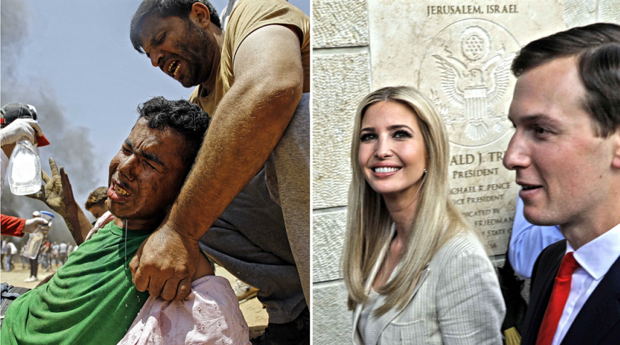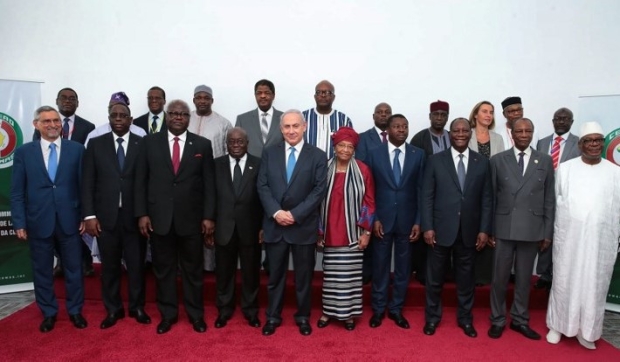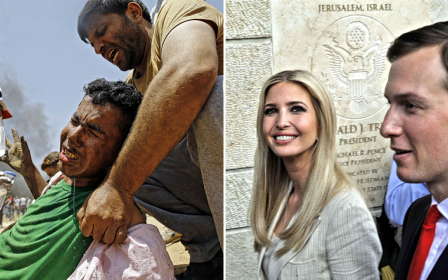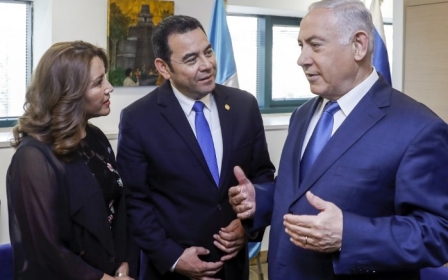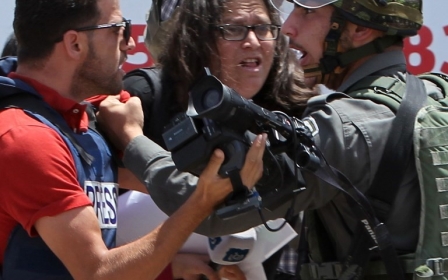Israel's new African friends will pay a price for this betrayal
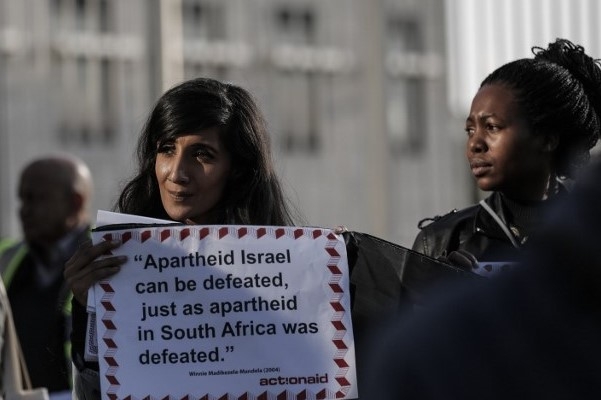
The split-screen juxtaposition had most of us trembling with anger. On the left, here was Ivanka Trump, the US president's daughter, beaming at the inauguration plaque outside the new US embassy in Jerusalem. On the right, Palestinians in Gaza were being pulled from the carnage of a bloodbath. At last count, at least 60 Palestinians were massacred. Another 2,700 injured by bullets and tear gas fumes. Gaza remains in trauma.
Without consequence
And while the usual tropes of Hamas involvement in inciting the protest movement have been spilling from American and Israeli mouthpieces - be they politicians, commentators or columnists - this week's devastating events left even the most neutral of observers stunned. How was it possible, in the 21st century, that such an atrocity could play out without consequence?
Surely the African nations in attendance know that they cannot endorse one crime and condemn the other - all in the same breath?
Multiple cameras, a soiree of international journalists and endless streams of social media had a massacre rolling in real time on our smartphones. Here we were: disoriented, helpless and useless.
While the imagery has left a powerful story about the indignity faced by Palestinians, and the impunity of Israeli aggression, the larger mainstream media, state and think tank machinery will find some reason or another to protect the perpetrators.
At the very least, each of the countries present at the US embassy inauguration are complicit in the murders of Palestinians since 30 March. The events of this past week did not happen in a vacuum; the countries that attended knew what was coming. Altogether, 22 countries attended the opening ceremony.
With Myanmar, the Czech Republic and the Philippines also in attendance, Israel had essentially assembled an all-star cast of right-wing fascists at the event. But there were also 11 African countries at the opening of the embassy.
Israel's closest partners
Tanzania, Angola, Cameroon, Republic of the Congo, the Democratic Republic of the Congo, Ivory Coast, Ethiopia, Kenya, South Sudan, Rwanda and Zambia all made the trip to Jerusalem to serenade the launch of the new embassy. For some, the attendance register came as quite a shock. For others, it was merely the returns for the efforts Israel has put into cultivating its relationships with Africans countries.
"It wasn't surprising that most of the countries were from East Africa, these are Israel's closest partners and where Israeli Prime Minister Benjamin Netanyahu has put into place his charm offensive," said Oumar Ba, an assistant professor of political science at Morehouse College in Atlanta.
Mahamat also said the embassy's move can only "complicate the search for a lasting solution" and "reiterate[d] the solidarity of the African Union with the Palestinian people in their legitimate quest for an independent and sovereign state with East Jerusalem as its capital."
Mahamat is quite correct. The opening of the US embassy in Jerusalem and the killings in Gaza are two ends of the same act. Both are a form of ethnic cleansing, a calculated attempt at elimination. Surely the African nations in attendance know that they cannot endorse one crime and condemn the other - all in the same breath?
But it seems they can.
It turns out that Israel is not in the least bothered by the diplomatic schizophrenia exhibited by its partners. Given Donald Trump's warning that aid will be cut to those nations who do not align with US foreign policy, some countries, like Tanzania, may have attended the embassy opening just to keep on the right side of American aid.
Israel has always found solace in building bilateral relations, establishing partnerships and sharing intelligence, over international public validation. A case in point: following the massacre on Monday, the South African government recalled its ambassador from Tel Aviv. A noble act it might be said, but South Africa and Israel enjoy an important strategic relationship which is unlikely to end overnight.
Israel is well aware that South Africa's pulling of its ambassador for the moment is a distraction from the real question: given everything that we know about apartheid Israel, why does South Africa still have an embassy in Tel Aviv in the first place?
Significant headway
Most African nations shunned Israel (publicly at least) for at least two decades following the Arab-Israeli war of 1973. However, Israel has, over the past decade in particular, managed to make significant headway among some African governments. With Gulf countries, in particular Saudi Arabia and the UAE, now growing closer to Israel, some African governments are a lot more comfortable going public with their burgeoning relations too.
Israelis have also come bearing gifts: offering technological prowess, military training, riot and crowd control expertise, arms and agricultural programmes.
"There has been a push from Israelis to cultivate close relations with all these states, because right now, their traditional allies are speaking out against some Israeli policies, and Africa remains the place where they can still get some support and they need all the support they can get. Israel would go anywhere right now to find friends," Ba says.
But as evidenced by the events this week, the Israeli charm offensive on the continent is working.
There are now 15 African countries with permanent embassies in Israel, with four African embassies having opened up in Israel in the last three years alone.
Betraying the Palestinians
For the inauguration of the US embassy, Tanzania sent its foreign minister, Augustine Philip Mahiga, the highest ranking official to visit Israel from that country.
Even African countries with sizeable Muslim populations, like Senegal, who might not have attended the opening of the embassy, their ties with Israel are still as close as they have ever been. In this case not attending the ceremony was a matter of prudence, given the possibility of a public backlash.
It's not as if the leaders of the African nations who travelled to Jerusalem aren't aware of Israel's occupation, and the tyranny it wields over Gaza. It is not as if these leaders are not aware of the 300 Palestinian children held in Israeli prisons or the obnoxious and dehumanising treatment of African refugees living in Israel.
Until the end of April, the Israeli government was planning a mass deportation, to their partners Rwanda and Uganda; African leaders said little disparaging about the prospect.
Betraying the Palestinian people is neither new nor unique. It has become for all intents and purposes the standard. But the decision to attend, acknowledge and respect the illegal annexation of Jerusalem as the capital of Israel should set off the alarm bells over the character of these African states.
These are not governments interested in rule of law, international consensus or pluralistic democracy. And make no mistake, Israeli assistance will come at a high price; by betraying the Palestinians, these governments betray themselves.
- Azad Essa is a journalist based in New York City. He has written for Al Jazeera English, The Washington Post and the Guardian. Follow him on Twitter: @AzadEssa
The views expressed in this article belong to the author and do not necessarily reflect the editorial policy of Middle East Eye.
Photo: A woman takes part in a demonstration of members of pro-Palestinian groups and other civil society organisations outside the US Consulate General in Sandton district of Johannesburg, on 15 May, 2018, to protest against the killing, the day before, of 59 Palestinians by Israeli forces (AFP)
Middle East Eye propose une couverture et une analyse indépendantes et incomparables du Moyen-Orient, de l’Afrique du Nord et d’autres régions du monde. Pour en savoir plus sur la reprise de ce contenu et les frais qui s’appliquent, veuillez remplir ce formulaire [en anglais]. Pour en savoir plus sur MEE, cliquez ici [en anglais].



